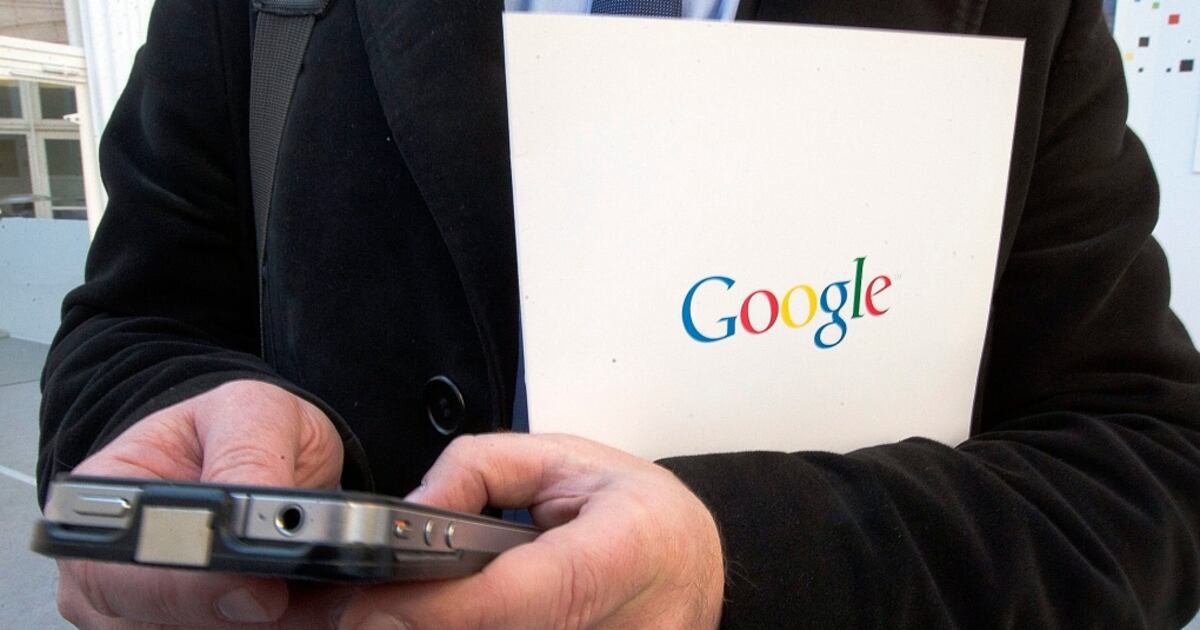Top Stories
Google Ordered to Pay US$425.7 Million for Smartphone Privacy Violations

A federal jury in San Francisco has mandated that Google pay US$425.7 million for violating privacy rights through improper smartphone tracking over nearly a decade. The decision, reached on Wednesday following a two-week trial, addresses the company’s actions concerning approximately 98 million smartphones in the United States from July 1, 2016, to September 23, 2024. This results in an approximate compensation of US$4 per device for affected users.
During the trial, Google faced allegations that it had been tracking users’ online activities without their consent, despite users attempting to protect their privacy through various controls. The eight-member jury determined that Google’s actions contravened California privacy laws, a conclusion that the tech giant has firmly disputed. In a statement from Google spokesman Jose Castaneda, the company expressed intentions to appeal the verdict, asserting that its privacy tools adequately empower users to manage their data. Castaneda remarked, “This decision misunderstands how our products work, and we will appeal it.”
The class-action lawsuit, which has been in progress for five years, highlighted that Google allegedly utilized data collected from smartphones to enhance targeted advertising, significantly boosting its revenue. The lawyers representing the plaintiffs argued that this practice constituted illegal profiteering, seeking damages exceeding US$30 billion. Although the jury’s awarded amount fell short of this figure, John Yanchunis, an attorney from Morgan & Morgan, described the verdict as a significant victory for privacy rights. He stated, “We hope this result sends a message to the tech industry that Americans will not sit idly by as their information is collected and monetized against their will.”
This ruling comes in the wake of another high-profile legal matter involving Google, where the company successfully navigated an attempt by the U.S. Department of Justice to dismantle its operations amid ongoing antitrust scrutiny. In a separate case, a federal judge had previously deemed Google’s search engine an illegal monopoly but opted for less drastic measures, including requiring the company to disclose certain search data to its competitors.
Google’s commitment to privacy has been increasingly scrutinized as concerns regarding data protection and user consent continue to mount. The jury’s decision may prompt further discussions within the tech industry about the balance between data collection for advertising purposes and the rights of consumers to maintain their privacy. As legal battles surrounding tech giants evolve, this case serves as a crucial benchmark in the ongoing dialogue about digital privacy and corporate accountability.
-

 Education3 months ago
Education3 months agoBrandon University’s Failed $5 Million Project Sparks Oversight Review
-

 Science4 months ago
Science4 months agoMicrosoft Confirms U.S. Law Overrules Canadian Data Sovereignty
-

 Lifestyle3 months ago
Lifestyle3 months agoWinnipeg Celebrates Culinary Creativity During Le Burger Week 2025
-

 Health4 months ago
Health4 months agoMontreal’s Groupe Marcelle Leads Canadian Cosmetic Industry Growth
-

 Science4 months ago
Science4 months agoTech Innovator Amandipp Singh Transforms Hiring for Disabled
-

 Technology4 months ago
Technology4 months agoDragon Ball: Sparking! Zero Launching on Switch and Switch 2 This November
-

 Education4 months ago
Education4 months agoRed River College Launches New Programs to Address Industry Needs
-

 Technology4 months ago
Technology4 months agoGoogle Pixel 10 Pro Fold Specs Unveiled Ahead of Launch
-

 Business3 months ago
Business3 months agoRocket Lab Reports Strong Q2 2025 Revenue Growth and Future Plans
-

 Technology2 months ago
Technology2 months agoDiscord Faces Serious Security Breach Affecting Millions
-

 Education4 months ago
Education4 months agoAlberta Teachers’ Strike: Potential Impacts on Students and Families
-

 Education3 months ago
Education3 months agoNew SĆIȺNEW̱ SṮEȽIṮḴEȽ Elementary Opens in Langford for 2025/2026 Year
-

 Science4 months ago
Science4 months agoChina’s Wukong Spacesuit Sets New Standard for AI in Space
-

 Technology4 months ago
Technology4 months agoWorld of Warcraft Players Buzz Over 19-Quest Bee Challenge
-

 Business4 months ago
Business4 months agoNew Estimates Reveal ChatGPT-5 Energy Use Could Soar
-

 Business4 months ago
Business4 months agoBNA Brewing to Open New Bowling Alley in Downtown Penticton
-

 Business4 months ago
Business4 months agoDawson City Residents Rally Around Buy Canadian Movement
-

 Technology2 months ago
Technology2 months agoHuawei MatePad 12X Redefines Tablet Experience for Professionals
-

 Technology4 months ago
Technology4 months agoFuture Entertainment Launches DDoD with Gameplay Trailer Showcase
-

 Technology4 months ago
Technology4 months agoGlobal Launch of Ragnarok M: Classic Set for September 3, 2025
-

 Technology4 months ago
Technology4 months agoInnovative 140W GaN Travel Adapter Combines Power and Convenience
-

 Top Stories3 months ago
Top Stories3 months agoBlue Jays Shift José Berríos to Bullpen Ahead of Playoffs
-

 Science4 months ago
Science4 months agoXi Labs Innovates with New AI Operating System Set for 2025 Launch
-

 Technology4 months ago
Technology4 months agoNew IDR01 Smart Ring Offers Advanced Sports Tracking for $169










